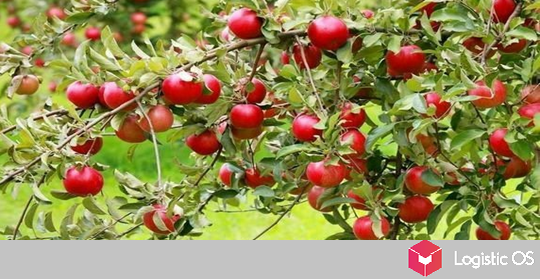One of the largest enterprises in Russia started operating in the Voronezh region.
Company Lidea is one of the TOP-10 world seed producers and operates in 17 countries, and production facilities are located in Russia, Romania, Ukraine, Spain and France.
The company’s annual turnover is more than 350 billion euros, more than 34 million euros are invested in research and development.
In 2020, the Russian seed market amounted to about $ 1.4 billion.
Every year about 11 million tons of seeds are sown in our country, while the share of domestic seeds does not exceed 63%.
But there are crops where the share of seed imports is much higher.
These are sugar beets (almost 100% of the seeds are imported), potatoes (over 90% of imports), sunflower (over 73%) and rapeseed (almost 69%).
At the same time, the export of vegetable oils from Russia increased by 45% over the year, and such dynamics inevitably leads to an annual increase in acreage, in particular, of sunflower.
Agrarians are increasing the use of hybrid seed varieties that give high quality and quantitative yield indicators.
Parent lines for the canopy of new varieties of sunflower and corn and their own hybrids will be produced at the Tanais plant in the Voronezh region.
The project is long-term and large-scale: the planned investments will exceed 4 billion rubles , some of which the investor will be able to return by reimbursing part of the capital construction costs.
The plant «Tanais» will not only produce seeds, but will also become a branch of the selection department of the Voronezh State Agrarian University.
In order to maximally adapt the hybrids to Russian climatic conditions, networks of breeding sites will be created.
A laboratory will also appear, which will check the quality control of seeds for compliance with Russian and European GOSTs.
Initially, the production capacity of the plant will be about a million seeding units per year, and all lines will be fully operational in 2023.
The plant is also aimed at export.
A Russian company must meet the demand for products Lidea where the capacity of factories in other countries is not enough.
The management of the plant expects that the quality control of production at all stages will make it possible to prove that Russian seeds are not inferior in their characteristics to European ones.
In Europe, Lidea produces seeds for sorghum, rapeseed, forage grasses, cereals, legumes and cover crops.
The Tanais plant will concentrate its production on the production of sunflower and corn seeds, but plans to switch to other types of seeds, in particular, soybeans.

